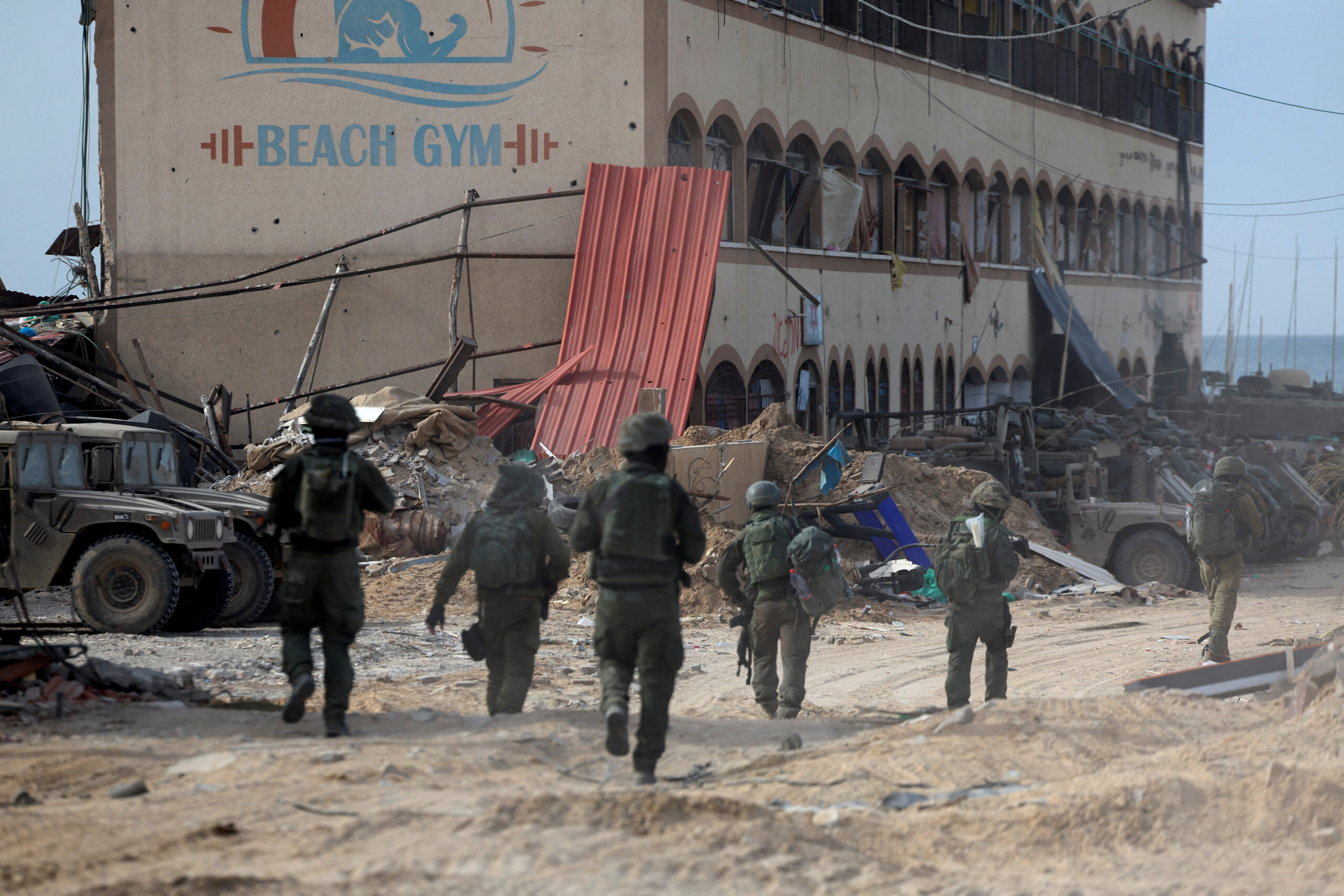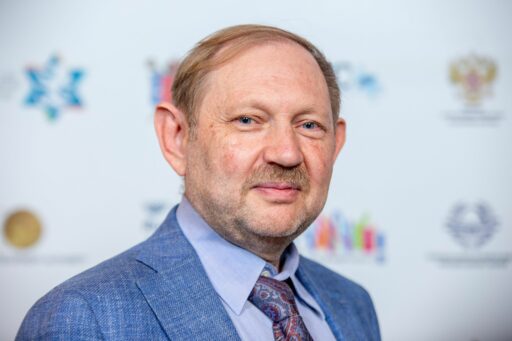Although Russia’s foreign policy interests today are predominantly focused on its war with Ukraine, it has not completely given up its geopolitical ambitions in other regions, including the Middle East. In the past, Russia sought to position itself as a party capable of cooperating with and mediating between virtually all actors in the Middle East conflict, but after 7 October, Moscow unequivocally supported Hamas. As a result, the balance of interests between Russia and Israel, built up over the past three decades, now faces an extremely difficult challenge.
The evolution of bilateral relations
Russia as a phenomenon and a symbol occupies an extremely important place in the Israeli public consciousness. Historically, the generation of Israel’s founding fathers came from the Pale of Settlement in the Russian Empire, so elements of Russian culture, worldview and lifestyle have largely become part of what is commonly referred to as the Israeli Zionist-Jewish ethos. On the other hand, as the heir to the USSR, which headed the anti-Western camp in the cold war, Russia has long been identified in Israeli society as a force whose fundamental interests are opposed to those of Israel. But there was another view, according to which Russian-Israeli relations have not reached the level of a strategic partnership not because of insurmountable «civilizational and political contradictions» (as is the case with the Arab world), but simply because Israeli and Russian interests in the region do not always coincide.
However, for the first 15−20 years after the restoration of diplomatic relations between the two countries in 1991, this dilemma was rather speculative. Throughout this period, political dialogue continued at the highest level, and the approach of the Israeli political establishment hardly went beyond strengthening ties with Russian Jews, encouraging their repatriation to Israel, energy imports, and (rather sluggish) measures to secure diplomatically and legally the activities of Israeli businessmen in the Russian market. Visits by top Israeli officials to Russia were then very unsystematic and sporadic. They served either to urgently resolve a sudden crisis in relations (such as Netanyahu’s visit in 1997, when he tried to hastily and without giving it much preparation disrupt the implementation of the Russian-Iranian nuclear treaty) or to present the Kremlin with another regional initiative already agreed upon with the United States, the European Union and the Arabs.
For a long time, the Israeli track was also relatively peripheral to Russia’s Middle East interests, even though trade and tourism between the two countries were gradually growing, there were joint industrial and commercial projects, and references by the Russian side to «a million compatriots living in Israel» were almost a ritualistic mantra. The Kremlin also realized that, unlike the USSR, Russia could not base its presence or standing in the region on a single «Arab foot.» Therefore, at least on the external, level the Kremlin tried to adhere to the principle of «balance of interests.»
The improvement in the Russian-Israeli relations began in the second half of the 2000s with Russia’s «return» as a major player in the Middle East region. The transition of Israeli-Russian relations to a close partnership was identified as one of the foreign policy priorities of Benjamin Netanyahu’s second cabinet (2009−2013). Mutual high-level visits, as well as intergovernmental and inter-parliamentary contacts during this period were «more symbolic than practical» in nature. However, according to Russian political scientist Fyodor Lukyanov, this symbolism reflected a non-trivial situation in which «Russia has better relations with Israel than with virtually the entire Arab world. With the exception of the Iranian issue, we have no particular divergences with Tel Aviv. And the cooling of relations with most Arab regimes is due to our support for Syria.»
Israel had to adapt to a new reading of Russian regional interests, which meant abandoning the foreign policy principle of «equidistance» of Yeltsin’s second term in office and Putin’s first. This principle was replaced by the demand for the restoration of Russia’s great power status, albeit initially at a level of declarations. Among other things, this meant that Moscow was no longer prepared to be satisfied with a symbolic presence in the Middle East, including in the sphere of Israel’s direct interests, where for almost a decade its role had been limited to that of a «co-sponsor of the Middle East peace process» (although some skeptics thought it was as much a fiction as the peace process itself).
Since Putin’s second term in office, Russian diplomacy has been geared towards preserving Russia’s relations with the Shia world while engaging Sunni governments in the creation of a Russian-Arab alliance. In practical terms, the aim was to secure massive intervention by Russian companies in the production, processing and transportation of hydrocarbons in Arab-Muslim countries; to expand and diversify contracts for the supply of Russian arms to local regimes; and to delegitimize Chechen and Dagestani separatists in the eyes of the «moderate» Islamic world. In a sense, the Kremlin’s Middle East policy also served the growing anti-American sentiment in Russian society.
«Kremlin optimists» and «Kremlin pessimists»
The reaction to these processes in Israeli political, media, business and analytical circles was ambiguous. These circles, as well as Israeli society as a whole, were quickly divided into two factions, which assessed the Middle East reflection of the «new reading» of Russian geopolitical and economic interests quite differently.
The «Kremlin pessimists» continued to suspect that the Kremlin’s new course was de facto reinforcing the pro-Arab and therefore anti-Israeli bias in Moscow’s strategy. It was expected that as Russia was trying to regain its status as a major world power and as such entering into an increasingly obvious political confrontation with the US and the West in general, it would sooner or later revert to the global political models and perceptions of the late Soviet era, including a vision of Israel as a potential adversary against the backdrop of its strategic partnership with the US.
Their opponents — the «Kremlin optimists» — believed Russia’s assurances that that it was returning to the Middle East not as a carrier of some ideology, but for purely pragmatic reasons. In this light, Russian military supplies to Israel’s enemies — Syria and Iran (including weapons that, despite all agreements and numerous assurances by the Russian side, often ended up in the hands of Hezbollah and other terrorist organizations in southern Lebanon) — were seen as «nothing else but business.» And Russia’s changing policy towards these regimes was supposedly just a matter of price, in the simplest and most primitive sense of the word.
In other words, even if global geopolitical interests can in principle put Israel and Russia on different sides of the barricades, the problem, if one accepts this view of things, is not the inherent conflict of interests between the two countries, but the «new» context of Russia’s global interests. Therefore, the «Kremlin optimists» believed that if the context or Israel’s position in it changed, the state of Russian-Israeli relations would also change. Until then, it was proposed to develop relations with Moscow in areas of mutual interest, bracketing those points on which Israel and Russia «agreed to disagree».
The agreements reached between Israel and Russia following the arrival of a Russian military contingent in Syria in 2015, in partnership with Iran, to save the Assad regime, might seem to confirm the validity of this approach. Israel assumed that Russia’s presence around the northeastern borders of the Jewish state was, in the words of its defense minister at the time, Avigdor Lieberman, «a fait accompli and a long-term factor.» Therefore, it was deemed appropriate not to take sides and not to interfere in the spheres of interest of the actors involved in Syria, as long as Israel’s ultimatum-like «red lines» were not crossed. For example, Israel has made it clear that it is not prepared to accept the opening of an additional Iranian front against Israel from the Syrian part of the Golan Heights and the expansion of the channel for transporting weapons destined for Hezbollah in southern Lebanon through Syria. In the course of bilateral Russian-Israeli contacts, these demands were accepted to varying degrees in the Kremlin, and an understanding was reached that any settlement options in Syria would have to take into account Israel’s vision of the situation. These agreements yielded a mechanism of coordination and mutual warning in Syria, which has largely ensured the IDF Air Force’s freedom of action against Iran’s anti-Israeli infrastructure and pro-Iranian terrorist groups based there.
For the most part, the 2010s were also a period of remarkable strengthening of the Russian-Israeli economic partnership. Mutual trade turnover grew, and joint projects were launched in transport, pharmaceuticals, agriculture, space, information and other areas. There were also cases of Israeli defense technology being transferred to Moscow, although this practice was discontinued in 2014 after Russia annexed Crimea. The prospect of Russian participation in strategic Israeli infrastructure and energy programs, including the development of new gas fields, has been discussed at various times, but has never been developed any further. In addition, scientific, cultural and other humanitarian ties have expanded, and tourism has boomed since the abolition of the visa regime in 2008.
However, we should not overestimate the importance of all these issues. Russia has indeed been a partner for Israel, especially after the «separation of interests» agreement in Syria, but it would be an exaggeration to say that the two countries have become strategic allies. Rather, it has been a tactical partnership based on the coincidence of certain interests and the observance of rules of the game that suited both sides.
The change of focus
The first signal that the situation was changing dramatically was the incident in the skies over Syria on 23 September 2018, when one of dozens of missiles fired by batteries of Russian S-200 systems in service with the Syrian air defense forces shot down an Il-20 electronic reconnaissance aircraft of the Russian Air Force. The Russian side was quick to blame the incident on the Israeli Air Force, which at the time was conducting an operation to destroy Iranian equipment for the production of high-precision missiles unloaded in Latakia. However, by the time the Syrians started «indiscriminate firing», the Israeli F-16s, which had carried out their mission, were already in their country’s airspace. According to the Russian Defense Ministry, the Israeli F-16s «deliberately» or, in the milder phrasing proposed by Kremlin, «as a result of a technical malfunction in the mutual warning system» allegedly «shielded» themselves with or hid behind the Russian Il-20, which, according to the Russian side, led to its destruction by Syrian air defense and the deaths of the officers on board the downed aircraft. At the same time, the Russian military and political establishment chose to ignore the detailed report on the incident, supported by photos, radar readings, audio and video recordings, which was handed over to the Russians by IDF Air Force Commander Amikam Norkin and which places full responsibility for the incident on the Syrians.
However, despite its harsh tone, the Russian Defense Ministry’s report, which was intended more for internal consumption, did not contain any specific threats or warnings against Israel. The Israelis, too, preferred not to escalate the discussion and refrained from publishing the Norkin report, which would most likely have completely deprived the Russians of freedom of diplomatic manoeuvre in this matter, while both countries clearly expressed interest in preserving the mechanism for coordinating the parties’ actions in Syria.
Much harder to ignore were the «patriotic» campaigns in many Russian media, in which a number of Russian public figures competed in the harshness of anti-Israeli rhetoric and made statements that bordered on — or, frankly, were — anti-Semitic. Although this campaign was soon cancelled, it became clear that the return of anti-Israeli and anti-Semitic clichés to Russia’s public space is quite possible if the authorities deem them necessary.
The scenario grew ever more realistic after the onset of Russia’s full-scale invasion of Ukraine. Israel immediately condemned the Russian invasion. It has been providing Ukraine with large-scale humanitarian and material aid, diplomatic and political support, and supplied Ukrainian Defense Forces with protective equipment and some types of protective, non-lethal weapons. However, unlike NATO member states that have provided security guarantees to Ukraine, Israel, contrary to Kiev’s expectations, has not directly joined the bloc of Western countries opposing Russia. The Israeli leadership, concerned about the security of the Jewish state in the light of the obvious growing threat from Iran and its regional satellites, expected — perhaps, much out of inertia — that the Russian-Israeli agreements and achievements of previous years had not lost their relevance.
Initially, this position of Israel officially suited Moscow, but gradually the Kremlin began to show growing irritation as Israel began to say more and more loudly that in light of Russia’s strategic rapprochement with Iran, the previous paradigm of relations with Moscow had exhausted itself. In addition, Israeli political circles are gradually realizing the need to be more attentive to the persistent hints (even if they do not sound like ultimatums) from the White House for Israel to take a more definite stance in the Russian-Ukrainian confrontation.
Does it all mean that the Russian demarches in favor of Hamas mentioned at the beginning of this article have dotted all the i’s and crossed all the t’s? Apart from the rhetoric irritating both sides, there are not too many facts that support this idea. The media reported that recent attacks by the Israeli Air Force on Iranian and pro-Iranian militia military infrastructure in Syria, including those located near Russian bases, unlike the practice of the past eight years, were carried out without prior notification to the Russian military contingent. Moscow declared this «unacceptable» because such steps, according to Lavrov, contain risks of expanding Israel’s conflict with Hamas into a «big regional war.» However, whether this is a one-off event or a fundamentally new practice is not yet clear. Israelis have been advised to refrain from travelling to Russia, but there are no direct bans on doing so. Russia’s abandonment of her balancing act between different players in the Middle East in favor of its bid for leadership of the «global south» leaves little room for partnership with Israel, but there is no talk of reducing the level of mutual diplomatic representation. At the same time, the current developments could jeopardize economic relations between the two countries.
The current situation bears little resemblance to the former «special relations» between Israel and Russia, but there is no talk of direct confrontation, either: the two countries are clearly not interested in opening another front. The vector of development of these processes depends to a large extent not so much on bilateral relations as on the duration and outcome of the war in Ukraine and Gaza (and in the Middle East as a whole).










